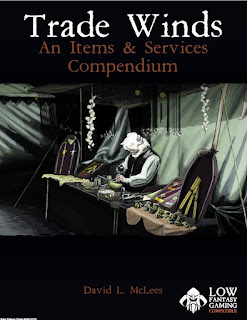Last week the inimitable
Travis Miller published an article called
What Is A Tabletop RPG System? In it, he tries to define what is a role-playing system. It's the beginning of a longer theoretical investigation, It really got me thinking.
I was hoping, as good communicators do, to rephrase it to see if I understand it, and then build on it.
So, the core idea that started Travis rolling was the tendency of role-playing hobbyists to call the rule sets that they tend to use "systems." But, if you consider what a system is, the game rules alone simply don't fit the definition. After all, the rule set is only an engine under which a lot of other things that go into the game runs on. And, if you consider how things are played in the Free Kriegspiel Revolution, then the rules may be almost unnecessary to role play.
The Impact of Setting Facts on Play
In the FKR, they say that you play the world, not the system. Whenever possible, players or the referee or both consider what makes logical sense given the fact established in play or the development sessions that built the world in the first place.
If, for example, you've established that the elves draw heavily on the darker aspect of Celtic lore as I have done in Xen, they will require blessed weapons, black Iron weapons, or possibly magic to kill them. In any other scenario, an elf might be overpowered and captured by a significantly more powerful opponent, but can only be completely removed from the story through a very narrow scope of means. That means when an elf meets a knight on the battlefield, or a giant, the results need to be interpreted in that context, never mind the rules. In an FKR game, it would probably be established at the knight would die a valiant death trying to take on an Elven swordsman, while the elf might end up trussed up for a century of torment before breaking free from a Giant's captivity unless rescued later.
Those facts are every bit as important to the game as how an attack roll is resolved. They are just as much a part of the system.






